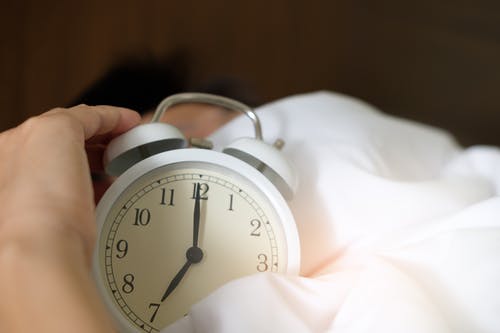U.K. researches create a biobank analyzing sleep patterns and mental health.
The Centre for Addiction and Mental Health (CAMH) indicated in a recent public health study that individuals who suffer from psychological conditions are more like to experience poor sleep than those who do not. The organization recently published a study investigating the connection between sleep and mental health in PLOS Medicine.
There are a number of mental health conditions that have been linked with poor sleep, including bipolar disorder, posttraumatic stress disorder, depression, anxiety and attention-deficit hyperactivity disorder, to name a few. And there have been many studies published citing the poor sleep patterns as a symptom of these disorders.
However, Shreejoy Tripathy, senior author and scientist at CAMH’s Krembil Centre for Neuroinformatics, said, “Until now nobody has looked at objectively measured sleep in the context of mental illness at quite this scale before.” Tripathy explained, “The differences in sleep patterns indicated worse sleep quality for participants with a previous diagnosis of mental illness, including waking up more often and for longer periods of time.”
Michael Wainberg, the study’s lead author and a postdoctoral researcher, added that it’s a vicious cycle. He said, “Poor sleep contributes to poor mental health and poor mental health contributes to poor sleep. Sleep pattern differences were a feature of all mental illnesses we studied regardless of diagnosis.”

As part of the research, the team analyzed data taken from 89,205 participants in the United Kingdom who agreed to wear an accelerometer on their wrist designed to monitor their body movements 24 hours a day for seven days. The data was collected and stored in a digital patient data biobank.
Using computational algorithms, the data was deconstructed into metrics, including “people’s bedtime, the time they woke up, naps, and the longest amount of time they had uninterrupted sleep,” the researchers noted. After that, they examined whether these individuals had a mental health diagnosis at any point in their lives, even if not current.
Previous sleep studies have shown the potential benefit of collecting data through these accelerometers and parsing information gathered from people in their natural sleep environments rather than in a laboratory setting.
“Part of why we wanted to do this study is that with the emergence of smartphones and wearables, we have access to data streams that we never had before,” Tripathy said.
Michael Mak, a CAMH psychiatrist and sleep disorder specialist, added, “Up to 80 percent of people with mental health disorders can end up spending more time tossing and turning, or have trouble staying asleep or waking up earlier than they’d wanted. We know that sleep disturbances cause a great burden to society, including an economic one. And we know that treatments that improve sleep quality, whether it is therapy or some types of medication, can improve mental health outcomes.”
The Krembil Centre for Neuroinformatics is furthering its research between mental health and sleep and is establishing a patient sleep data biobank in Canada via similar means as its study in the U.K. It is unclear whether this research will be extended to the U.S.
Sources:
Restless nights tied to mental illness, new large-scale study says
Mental illness associated with poor sleep quality according to largest study of its kind


Join the conversation!